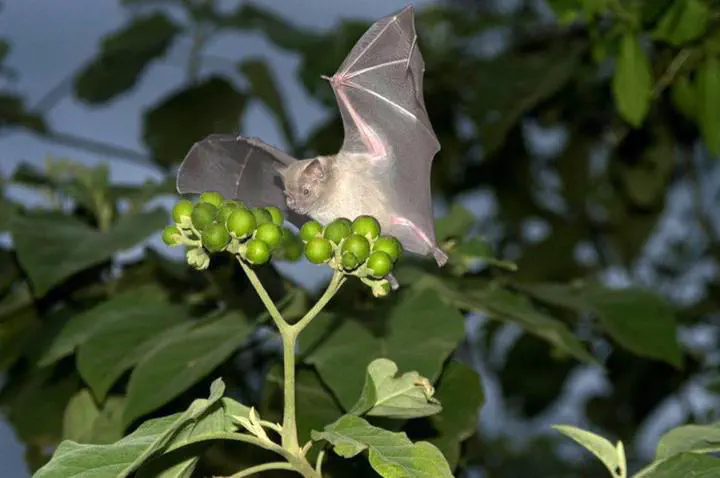Molecular adaptation and convergent evolution of frugivory in Old World and neotropical fruit bats
 Image credit Carlos Mancina
Image credit Carlos Mancina
Abstract
Although cases of independent adaptation to the same dietary niche have been documented in mammalian ecology, the molecular correlates of such shifts are seldom known. Here, we used genomewide analyses of molecular evolution to examine two lineages of bats that, from an insectivorous ancestor, have both independently evolved obligate frugivory: the Old World family Pteropodidae and the neotropical subfamily Stenodermatinae. New genome assemblies from two neotropical fruit bats (Artibeus jamaicensis and Sturnira hondurensis ) provide a framework for comparisons with Old World fruit bats. Comparative genomics of 10 bat species encompassing dietary diversity across the phylogeny revealed convergent molecular signatures of frugivory in both multigene family evolution and single‐copy genes. Evidence for convergent molecular adaptations associated with frugivorous diets includes the composition of three subfamilies of olfactory receptor genes, losses of three bitter taste receptor genes, losses of two digestive enzyme genes and convergent amino acid substitutions in several metabolic genes. By identifying suites of adaptations associated with the convergent evolution of frugivory, our analyses both reveal the extent of molecular mechanisms under selection in dietary shifts and will facilitate future studies of molecular ecology in mammals.